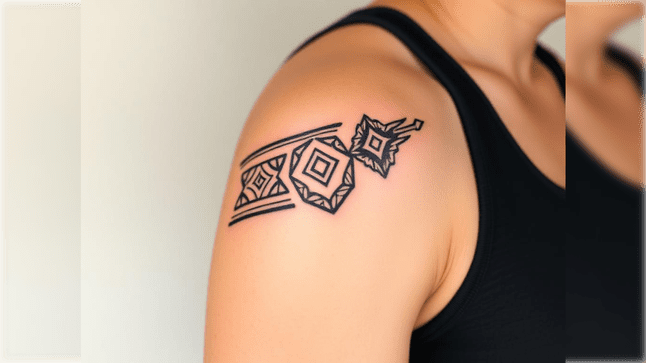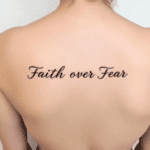Introduction: The Rising Popularity of Spiritual Tattoos
In recent years, spiritual tattoos have emerged as more than just a form of body art; they’ve become powerful symbols of personal growth, healing, and self-expression. Unlike traditional tattoos, which often focus solely on appearance, spiritual tattoos carry deep meanings and are chosen to represent an individual’s inner beliefs, values, and life journey. These tattoos are often rooted in various spiritual traditions, from Buddhism and Hinduism to indigenous practices and contemporary mindfulness movements.
Spiritual tattoos have been embraced by people in a search for inner selves, and they enhance the practice of spirituality and the manifestation of personal transformation. The tattoo, in this case, may symbolize protection, peace, or personal empowerment; its meaning is a reminder of what one values and seeks to do in life. In addition to aesthetic appeal, these tattoos serve as meaningful means to express one’s spirituality, being a constant companion to a person on the path of discovery and healing.
In this post, we’ll explore the significance of spiritual tattoos, their connection to personal growth, and how they have become a modern expression of spiritual beliefs.
Defining Spiritual Tattoos: What Do They Represent?
Spiritual tattoos are much more symbolic and rooted in the individual’s personal beliefs, mindfulness, and cultural traditions rather than purely aesthetic purposes, which apply to most other traditional tattoos. They mean something: they usually express a specific value or spirit in their wearer, who can hold them dear as permanent reminders of their inner beliefs and of the changes within them.
A spiritual tattoo may symbolize protection, healing, enlightenment, or a connection to the universe. The Om may be chosen for a person practicing yoga or meditation to symbolize peace and universal harmony. The lotus flower could symbolize growing spiritually and the beauty of coming up from difficulty. These tattoos were taken to align the wearer with higher consciousness, or some personal goals, carrying dual physical and emotional meaning.
Beyond personal meaning, spiritual tattoos often tie into cultural or religious traditions. Many symbols, like the hamsa or tree of life, have been used for thousands of years in various cultures to represent protection, balance, and a connection to nature. By choosing these symbols, individuals honor the traditions they are drawn to, while also creating a unique and deeply personal connection to their spirituality. Overall, spiritual tattoos are inspiration and a reflection of the values guiding one’s life in a constant manner.
Popular Spiritual Tattoo Symbols and Their Meanings
Spiritual tattoos often contain very powerful symbols that carry deep meanings rooted in ancient traditions and personal transformation. Here are some of the most popular spiritual tattoo symbols and the significance they hold for those who choose to wear them.
Lotus Flower
The lotus flower is one of the most recognized symbols in spiritual tattoos. In many cultures, it represents purity, enlightenment, and spiritual growth. The capability to bloom so beautifully growing from mud symbolizes emerging over adversity and becoming stronger than that challenge. To the spiritual pilgrim, the lotus tattoo speaks of inner strength and opportunity to move forward despite the challenges set out by that challenge. It is mainly done by people who are performing mindfulness activities such as meditation and yoga.
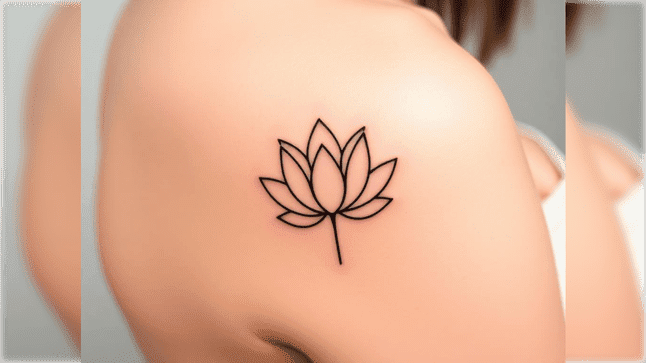
Mandala
Mandalas are intricate geometric designs that represent wholeness and unity, as well as the connection between the individual and the universe. Based on Hindu and Buddhist philosophies, the mandala is the universe in itself, providing balance and harmony. In tattoo form, the mandala can aid in centering the mind, bringing peace and introspection into one’s life. Many people get mandalas because of their meditative properties as well as their representation of traveling toward spiritual balance and self-awareness.
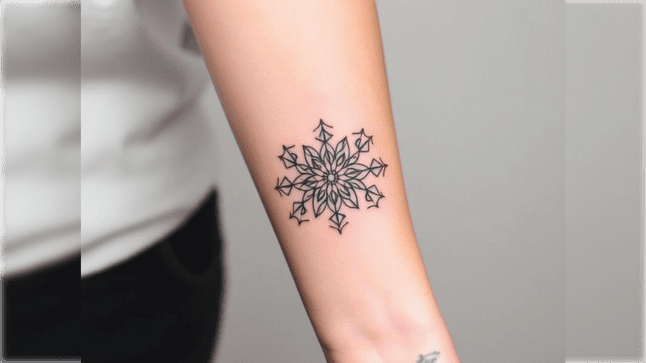
Om
The Om symbol is the sound and spiritual icon in Hinduism, Buddhism, and other Eastern philosophies that represent the basic vibration of the universe. It symbolizes interconnectedness between all things and is sometimes seen as a symbol of peace, serenity, and spiritual awakening. An Om tattoo for someone practicing yoga or meditation would remind them of their connection to the divine and the importance of mindfulness in everyday life.
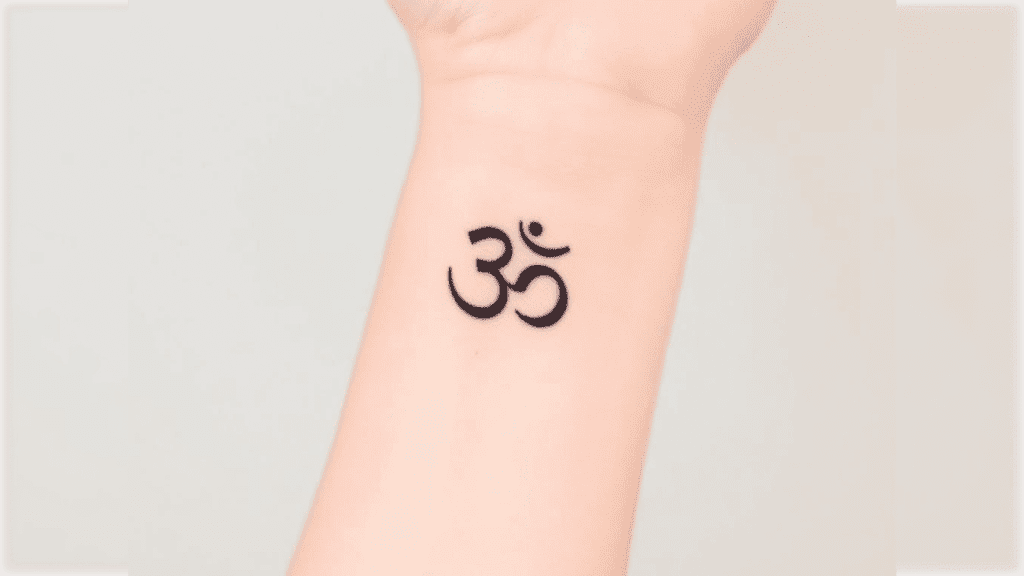
Tree of Life
The tree of life is one of the symbols of growth, strength, and connection to everything in life. In many cultures, it represents the cycle of life, and roots are deep in the earth while branches reach for heaven. For those seeking balance and a reminder of their interconnectedness with nature, the tree of life tattoo is a powerful symbol. It is often worn by those who feel a deep bond towards nature or are on a spiritual sojourn of discovery.
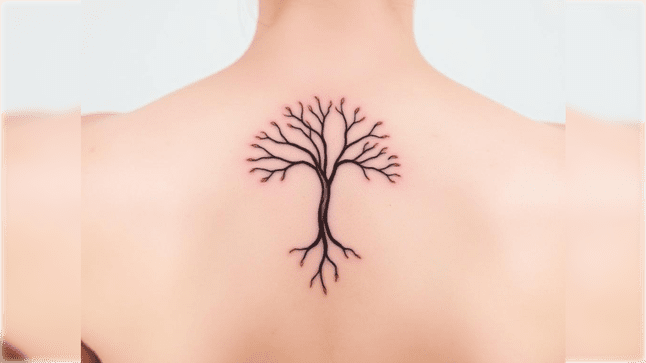
These symbols are more than gorgeous aesthetics-they are personal expressions of philosophy, values, and spiritual orientations. Whether selected for associations made with specific practices or for attracting personal growth, these spiritual tattoos speak to people seeking meaning and relationship.
Cultural Significance of Spiritual Tattoos
Spiritual tattoos have long cultural backgrounds and have been used in different societies for centuries for personal expression, protection, and higher spiritual connections. The cultures differ in their customs and beliefs, which determine the designs of the tattoos and their meanings.
Polynesian Tattoos
The most notable spiritual designs are the Polynesian tattoos from Samoa, Tahiti, and Hawaii. Traditionally, these tattoos were used to mark significant life events such as rites of passage, warrior status, or spiritual connection to ancestors. Each design is intricately crafted, with geometric patterns and symbols that represent family, nature, and spirituality. The tattoos were considered sacred, believed to offer protection, and often tied to the wearer’s relationship with the gods and their ancestors. Today, although these tattoos have become a fashion statement, still, for many Polynesians, they hold spiritual and cultural significance, reflecting an appreciation for tradition and heritage.

Native American Tattoos
Native American spiritual tattoos differ among the tribes, but most are reflections of a person’s personal journey, their relationship with nature, and spiritual beliefs. Some of the common symbols are eagles, wolves, and bears, representing strength, protection, and guidance. Tattoos were also used during ceremonies to connect with the spirit world, heal, or mark some of life’s milestones. Many of today’s Native American tattoos continue in these traditions as signs of honor, respect, and bonding with the natural world.
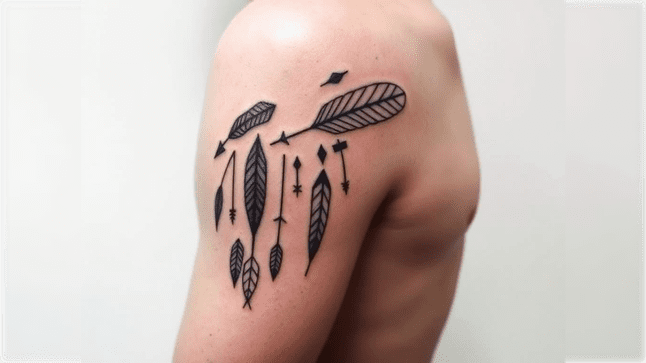
Buddhist Tattoos
Buddhist spiritual tattoos are deep in symbolism, usually decorated with images of the Buddha, lotus flowers, or mandalas. Usually, people get these tattoos because they mean enlightenment, inner peace, or a pursuit of spiritual knowledge. In Thailand, “Sak Yant” refers to the sacred art of traditional tattooing practiced by monks, where tattoos believed to offer protection and give strength. For many, however, these tattoos remind them of mindfulness and meditation and the desire to follow in the path of enlightenment.
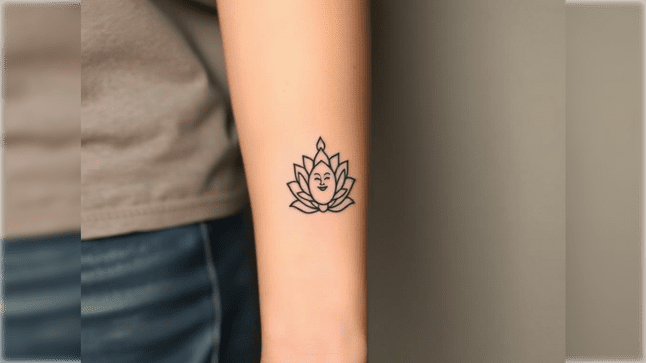
Such practices have become popular worldwide due to the fact that the people from different backgrounds and cultures are adopting symbols with traditional meanings to represent their individual thoughts, belief, or philosophy of life. Some people are attracted to the beauty of the tattoos, while others honor the spiritual meaning behind them, integrating spiritual uses into both traditional and contemporary concepts of these tattoos. As these tattoos evolve, they continue bridging cultural boundaries, offering the world individuals’ meaningful connections to their own spirituality.
People also read: Faith Over Fear tattoos
Spiritual Tattoos as Tools for Healing and Protection
Generally speaking, spiritual tattoos tend to be very powerful remedies or tools for healing protection. Many of these are preferred for their symbolic significance alone, which is usually attached to emotional, mental, and spiritual benefits that flow as a result of donning them. It’s also a way of escaping traumas in the past to heal, warding away negative energies, bringing inner peace, or establishing one’s life in all manners.
Among the most widely used symbols for protection is the Hamsa hand. This is an emblem from Middle Eastern and North African cultures, believed to provide divine protection, which often keeps the wearer away from “evil eye” or bad energies. The open hand symbolizes strength and blessings that protect against the negative, bringing peace and harmony. People who choose the Hamsa tattoo often do so as a spiritual safeguard, believing it will keep them grounded and protected throughout life.
One of the most common symbols used is the Evil Eye. It is generally associated with Mediterranean and Middle Eastern culture, believed to ward off evil and jealousy. Most often, the symbol comes in the form of a blue or turquoise eye, one that is thought to consume negative energy cast upon its wearer. For many people, this is a form of protection, warding off harm and attracting good fortune.
Other than the above-mentioned protective symbolism, spiritual tattoos can also provide healing reminders. For instance, the Ankh ancient Egyptian symbolizes eternal life and spiritual renewal, often on those who are healing about personal loss or seeking emotional transformations. Likewise, tattoos are healing and personal growth because the Lotus Flower symbol is seen to rise above something, thereby achieving peace as well as clarity.
Choosing these symbols allows individuals to indicate their bodies but, more importantly, put into practice the deep spiritual concepts that come with them into a personal talisman supportive of healing, protection, and pursuit of inner peace.
How to Choose a Spiritual Tattoo: Tips for Personal Connection
Choosing spiritual tattoos is very personal; it surpasses aesthetics as it would probably reflect the values, beliefs, and even the spiritual journey you have undertaken. This comes with simple recommendations to ensure that you have made a choice of a meaningful connection with the tattoo to your life and to yourself.
Reflect on Your Spiritual Journey
Take some time reflecting on your spiritual beliefs and experiences that have shaped you. Think of symbols, practices, or philosophies that resonate with you on a deep level. Whether it’s your connection to nature, a specific spiritual tradition, or a personal experience, the tattoo should symbolize something that has real meaning in your life.
Research the Symbolism
Different spiritual tattoo designs have different meanings, so it’s very important to research the symbol that you’re attracted to. Ensure that you know its cultural and spiritual meaning, since this can differ between traditions. This will ensure you pick something that connects well to you and your intentions so that no misinterpretations or something more sensitive to cultures is drawn unto your skin.
Consider Your Intentions
Consider why you want the tattoo and what it should represent. For example, would it be a reminder of personal growth? Symbol of protection or healing? Representation of peace or mindfulness? Knowing your intention behind the tattoo will help guide your decision and ensure that it remains meaningful throughout your life.
The Spiritual Tattoo Experience: What to Expect
Getting a spiritual tattoo is, in fact, a meaningful experience that involves more than the tattooing process. In fact, it’s just a personal journey connecting you to the symbol you chose. Here’s what awaits you from consultation to aftercare.
Consultation
The process begins with a consultation with your tattoo artist. This is a very important step as you get to discuss the spiritual importance of your design, ensuring that the artist is aware of your vision. A good tattoo artist will listen to your ideas, make suggestions, and refine the design to suit your beliefs and preferences. During the consultation, ensure that the artist respects the cultural and spiritual meaning of the tattoo, which will ensure the final piece is authentic and meaningful.
Tattooing Process
After finalizing the design, the artist will start the tattooing process. The time taken will depend on the size and complexity of the design, which may take a few hours or even more than one session. It is very physically taxing, yet a great many find it a meditative process, particularly if the tattoo holds great spiritual meaning. It becomes a moment in which one may connect with the symbol, contemplate the journey on the body being marked, and even share in this very symbolic rite of passage.
Aftercare
After the tattoo is done, proper aftercare is crucial to ensure healing and to preserve the vibrancy of the design. The artist will provide specific instructions on how to care for your tattoo, including cleaning, moisturizing, and protecting it from the sun. Follow these instructions carefully to maintain the integrity of your tattoo and prevent any infection.
It is not only about the final design, but about the whole experience. If you work with an artist who understands the importance of the symbol and you do your aftercare right, you are sure to make that tattoo a meaningful and lasting part of your spiritual journey.
Conclusion: The Enduring Power of Spiritual Tattoos
Spiritual tattoos are much more than a body art; they’re powerful symbols of personal growth, belief systems, and inner connection. They remind one of their spiritual journey by guiding them toward healing, protection, and self-discovery. Whether you choose to have a symbol of peace, strength, or transformation, a spiritual tattoo may represent your unique path. If you find yourself attracted to one, consider how it may express your values and beliefs, giving you a permanent bond to your changing spiritual path.

